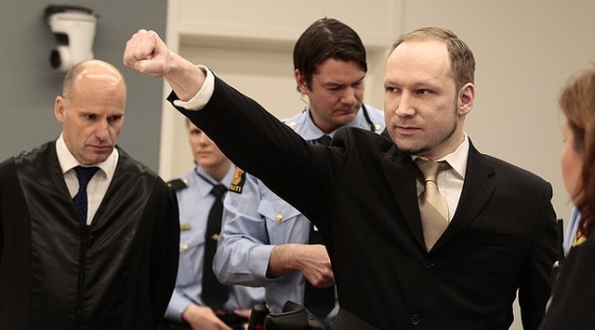BECOME A MEMBER
>JOIN
Who Becomes Radicalized? Not Just Muslims

The consensus of most experts is that all terrorists are radicals, but only a small minority of radicals are terrorists. In fact, UK think-tank Demos observed in a 2010 report that non-violent radicals can be important allies in combating violent radicalism. Consequently, a challenging issue is how to pinpoint the violent individuals who constitute only a sub-set of radicalized individuals.
Since September 11, 2001, the overarching focus of law enforcement and intelligence agencies has been on the radicalization of Muslims. A 2006 report from the New York Police Department (NYPD) outlines several individual risk factors.
For instance, it notes that middle class, educated, and male Muslims under the age of 35, second or third-generation immigrants and recent converts to Islam are more vulnerable to radicalization. However, strict Islamic religious training is not a risk factor. Research shows that many Islamist terrorists in fact do not practice Islam regularly, lack religious literacy, and may be regarded as "religious novices."
Radicalism exists across ethnic and religious divides and on any end of a given political spectrum. One of the most gruesome terrorist attacks in recent memory was committed in Norway by Anders Behring Breivik, an anti-Muslim radical convinced that Islam was destroying Western civilization. Non-Muslim radicalism is also prevalent in Canada.
Blood and Honor, an internationally recognized white supremacist "hate group," has been linked to recent attacks in Canada. In one instance, a Filipino man was set on fire. Also, a 2011 CSIS report noted that left-wing extremist groups, such as the Initiative de Résistance Internationaliste (IRI), pose a serious security risk in Canada. These groups -- which target banks, the "prison-industrial complex", and the military -- have been responsible for the majority of politically motivated bombings since 2004.
As noted by terrorism scholars Jamie Bartlett and Carl Miller, to join the battle against the power and authority of Western states is considered risky, exciting, heroic, and taps into a counter-cultural and anti-establishment tradition exemplified by many youth subcultures, both Muslim and non-Muslim.
Radicalization is a complex process and largely impervious to profiling or simplistic categorization. If the risk factors outlined above were used to isolate portions of the Canadian population, the majority of people identified would likely be ordinary, peaceful and moderate. Risk factors must be seen as "permissive" rather than "causal." In other words, they help establish a context where radicalization is more likely to occur.
PN Member Senator Mobina Jaffer represents the province of British Columbia in the Senate of Canada, where she chairs the Standing Senate Committee on Human Rights. Appointed to the Senate on June 13, 2001, she is the first Muslim senator, the first African-born senator, and the first senator of South Asian descent. Senator Jaffer also sits as a member of the Senate’s Anti-terrorism and Legal and Constitutional Affairs committees.
Originally published on Huffingtonpost.ca.
Photo by Panorama Mercantil.

